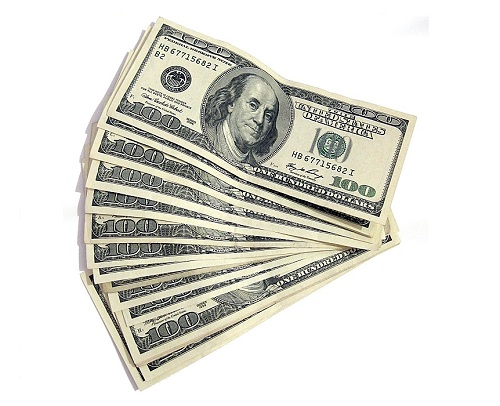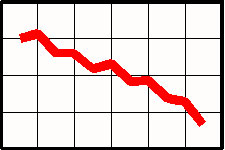The Advantages of Dividends
|
I'm sold on the advantages of dividends because my stock portfolio generates considerable income. However, many companies don't pay a dividend at all and many investors think this is a good thing. Perhaps a company should instead try to use the cash to increase its stock price in other ways? In this article I'm going to take a look at the positive side of dividends. |
|
1) A cash dividend means you are receiving a payment in return for your investment.

At the end of the day, as Jeremy Siegel notes in "Stocks For The Long Run" (one of our favorite investing books), "Although earnings determine the amount of dividends paid by the firm, the price of the stock is always equal to the present value of all future dividends and not the present value of future earnings."
Effectively this is saying that the whole value of a share is in the dividend they pay. If earnings are not used for dividends now then they are only of value to you as an investor if they are paid at a future date. This future payment should be discounted back to its present value.
Earnings not paid to you now can be reinvested into the company (organic investment), be used for acquisitions, be used for share buybacks, or can pay down debt. If companies do these wisely, then future dividends should be higher.
2) Dividends mean you don't have to sell shares to realize a return.
The stock market is generally fairly good at valuing businesses. This means that if the company you have shares in is consistently increasing earnings per share, then in the long run, the price per share should rise.
That said, valuations can move aggressively and at times stocks can be very undervalued or depressed like in 1974 or 2009.
If you were not receiving dividends and were reliant on your stock portfolio for income at this time then you would have been forced to sell in these down markets, thus selling an undervalued security at a terrible time. We are advocates of never being forced to sell your stocks and regular dividends are a way of helping you avoid being a forced seller.
3) Dividends can support the stock price during a market downturn and reduce volatility.

Several studies into the advantages of dividends have shown that dividend-paying stocks outperform during bear markets and recessions. For example, Nova Southeastern University have pointed out that the dividend aristocrat index outperformed the S&P 500 index by an annualized 29.88% during the 2001 recessionary period and by an annualized 23.71% during the recessionary period of 2008. For the whole 2001-2008 period the dividend aristocrat index outperformed the S&P 500 by 6.45% annually.
A reason why dividend stocks outperform during poor markets is because if the share price is falling and investors feel the dividend is safe, then investors are going to be drawn to buy into the stock because of the yield alone.
For example, imagine if a stock with a comfortably covered dividend has a 4% yield and the stock market crashes so this stock halves in value. Suddenly the yield will be 8% and some investors will think this is so attractive that they start buying the stock, hence helping support the stock price.
Remember that interest rates also tend to get cut during very weak markets which make dividend stocks look even more attractive compared to the risk free rate. Again, this helps support dividend stocks in a down market.
4) Dividends can give you a "total return accelerator" during a market downturn (for my money the most powerful of all the advantages of dividends)
As mentioned above, one of the advantages of dividends is that they can protect you during a bear market. They can also help accelerate your returns during a market downturn and help you recover your capital more quickly. This is because you can use your dividend payments to reinvest into cheaper stocks and buy more shares than during higher markets.
Jeremy Siegel sums this up perfectly by saying: "The greater number of shares accumulated through reinvested dividends cushions the decline in the value of the investor's portfolio. It is because of the additional shares purchased in down markets that I call dividends the 'bear market protector'. These extra shares will greatly enhance future returns. So in addition to being a bear market protector, reinvesting dividends turns into a 'return accelerator' once stock prices turn up. This is why dividend paying stocks provide the highest return over stock market cycles."
To see an example of this effect, have a look at the New York Times' excellent piece: "25 Years to Bounce Back? Try 4 1/2?" on how a combination of dividends and deflation meant that although the Dow Jones did not return to its 1929 high level until 1954, an investor who reinvested his or her dividends actually had recovered their 1929 purchasing power by late 1936. They certainly would have been aided by the overall market yielding close to 14% in 1932!
5) Dividends act as a "rod" for management and make it more difficult for them to misallocate capital.
Investors in many companies expect dividends not only to be paid but to grow over time. Managers therefore focus heavily on generating the cash to cover these dividend payments. They then need to think about how they invest any retained earnings at the highest rate of return possible so that they grow the dividend in the future.
If companies were not to pay out a dividend there would be a risk that managers would get sloppy with the cash that built up and maybe embark on value-destroying acquisitions or make investments at ever-lower rates of return. This misallocation of capital would make shareholders poorer than if the cash had just been paid back to them as a cash dividend.
Therefore the management of dividend companies has to be more selective and careful in how they spend the retained earnings of the business, only selecting the very best acquisitions or most promising expansion plans. Obviously as an investor in these companies this is one of several advantages of dividends.
Continue reading about the advantages of dividends by clicking here
Got a BURNING dividend question for 6-figure dividend earner Mike Roberts?
What is it that you really want to know about investing?
Submit a query and Mike will write a page in response.
PLEASE NOTE - in accordance with our terms of use, responses are meant for education / interest only. We do not give specific financial advice.
What Other Visitors Have Said
Click below to see contributions from other visitors to this page...
Where are the retirement planning software tools for dividend investors? 




Really enjoy your articles, and have been drinking the Kool-Aid on dividend growth investing for about 10 years now – really wish I had understood the …
puzzled 




when a dividend is given, the stock price devaluates by the same amount. what is the advantage of that. I have difficulty understanding that part of it. …



